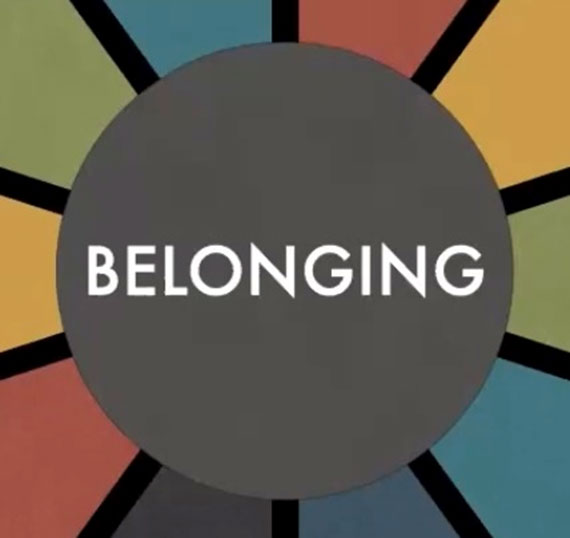
To Be Known
Known for my Strengths: Seeing disability through a different lens - Erik Carter (2021 - youtube.com)
EXPECTATIONS MATTER and expectations are so often driven by the views we hold about young people with labels of disability.
...changing outcomes (education, employment, engagement in community life) has to involve CHANGING OUR INTRODUCTIONS.”
...throughout society, (we) still struggle to see people with disabilities first and foremost as having strengths and assets and positive qualities that are actually needed in their community.”
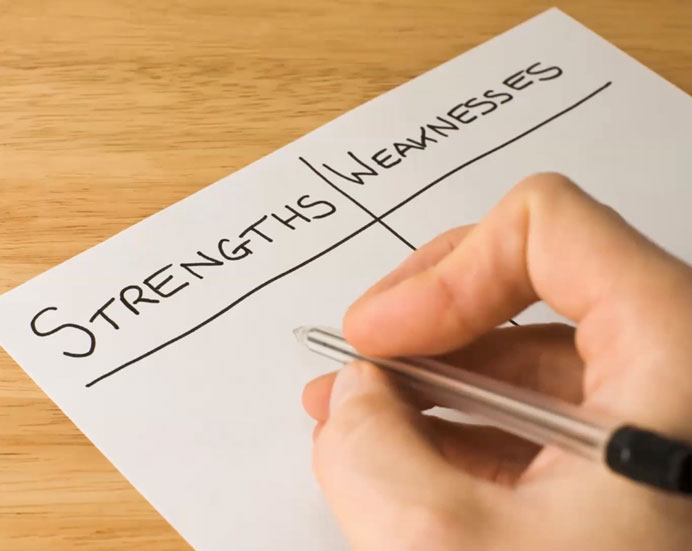
Changing Our Introductions
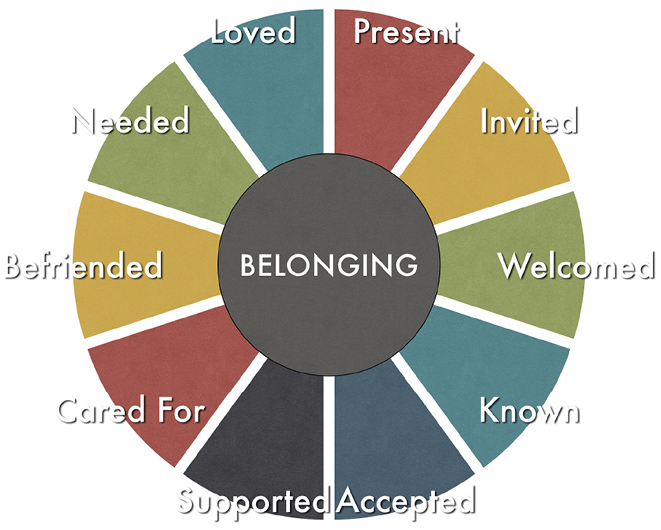
10 Dimensions of Belonging
A desire to belong is not a “special need”. In fact, belonging is a very ordinary need shared by most everyone, with and without disabilities.
Carter explores what it means to be a community of belonging for people with disabilities - Elizabeth Turner (2019 - vkcsites.org)
Are individuals with disabilities truly known within your community? ... Known not by a label, but as an individual. Known not by deficits, but by strengths.
...addressing these 10 dimensions of belonging within the church is more likely to require ordinary gestures than extraordinary responses. So you already know what you need to know to be able to do this on behalf of people with disabilities.
Being known and being cared for can mean members of a congregation are helping someone with a disability find meaningful work. “Everyone needs care...There are many ways to meet this need, and most require no disability expertise, such as...providing a job connection...”
Putting Faith to Work: How Faith Communities Can Support Employment for People with Disabilities (ACL guest blog by Erik Carter, Ph.D and Bill Gaventa, M.Div - vanderbilt.edu)
Also see Collaborative on Faith and Disabilities.
“Putting Faith to Work...invites a core group...to come together around one or more persons with disabilities...get to know them well...then looks to the wider congregation...to help find opportunities for job exploration, training, or employment at places where others in the congregation may already be employees or employers...Do this in partnership with help from rehabilitation, transition, or supported employment services, and the chances for success increase even more.”
People with intellectual and developmental disabilities who are truly known in a congregation can benefit from this social capital in several ways, including during the discovery process for customized employment, if the support professional interviews fellow faith community members who can shed light on the job seeker’s needs, strengths, and marketable traits.
Belonging in Faith Communities - Vanderbilt Kennedy Center (03:13 - vimeo.com)
Belonging in Faith Communities ... illustrates why belonging matters so much and what true belonging looks like in two Nashville-area church congregations.
- Vanderbilt Kennedy Center
Parents considered congregation-wide disability awareness to be among the most helpful efforts faith communities could undertake.
Welcoming People with Developmental Disabilities and Their Families: A Practical Guide for Congregations (vumc.org)
What are the individual’s “strengths, interests, and gifts; support needs and challenges; spiritual and participation goals” for the year?
- Taylor, Carter, Annandale, Boehm, Logeman (2014) pg. 11
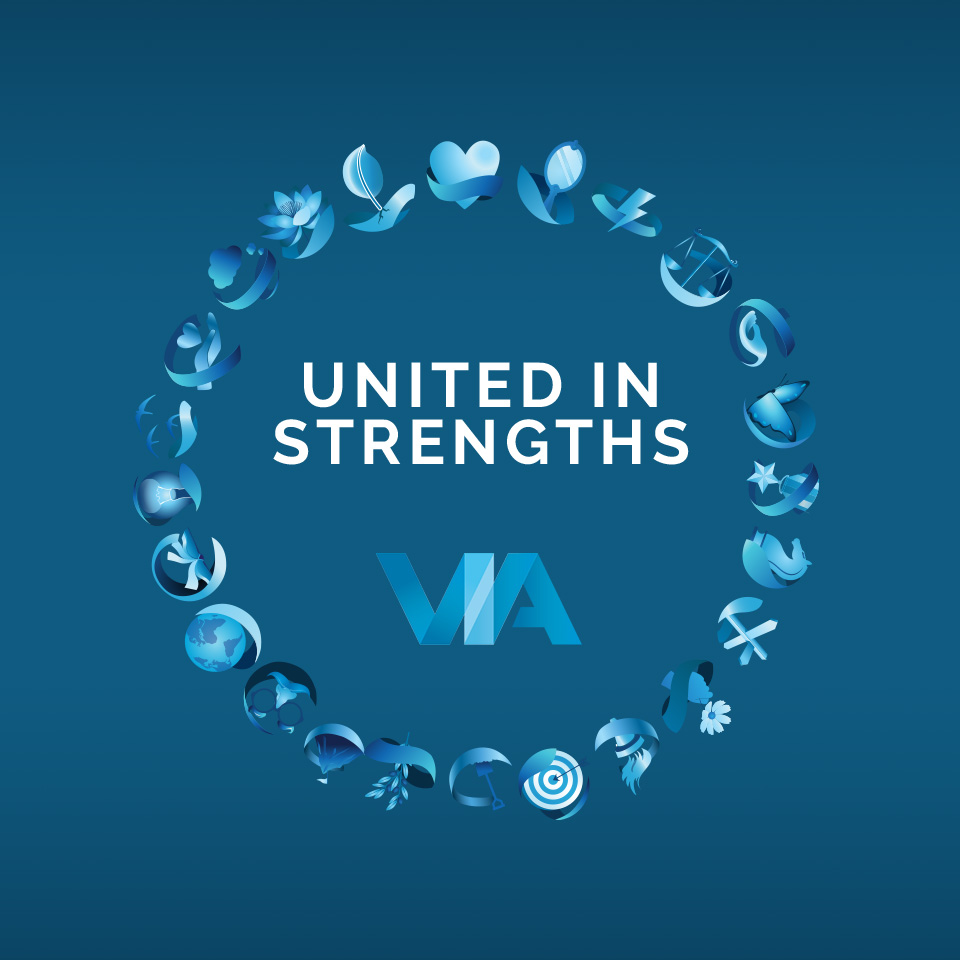
Strengths Briefing (2018 - viacharacter.org)
Parents, grandparents, and other family members who are strengths-based make an effort to spot the character strengths of their kids in action. They observe the child when doing homework, at play, and in conversation. They use the SEA model of Spot, Explain, Appreciate (Niemiec, 2018) to pave the way toward well-being and adversity management.
Spot: Label the strength the child is expressing.
Explain: Offer rationale for the strength being spotted.
Appreciate: Convey the child is valued for their strengths.
Strengths and Interests Form
This is an example of a form that can be used with family, friends, teachers, and support professionals who know the individual well. It has five questions to answer regarding the individual’s character strengths, interests, and skills—what they do well.
It’s time to make [faith communities] accessible to people of all abilities - Karen Jackson (2020 - uscatholic.org)
Know the needs of your [faith community]. Presume competence. Don’t keep your efforts to be accessible and inclusive a secret. It’s all about relationships. Conduct outreach to develop a culture of inclusion.
Karen Jackson is Founder and Board Chair of the Faith Inclusion Network - an interfaith organization supporting the inclusion of people with disabilities in congregational life of religious communities.
To start a “disability ministry” (not a new program):
Find like-minded people, especially those living with disabilities, and also get the support of clergy.
- Start a disability/accessibility/advisory committee that includes at least one person with a disability, or a parent of one, and also a children’s or youth leader.
- Have someone preach or do an awareness presentation to the congregation on the topic of disability.
- Conduct a short congregational survey to identify needs for which options and accommodations need to be made.
- Conduct a Hospitality Ministry (greeters and ushers) mini-workshop on the topic of disability.
- Update the website, bulletins, and signage with themes of welcome, inclusion and accessibility and who to call for questions.
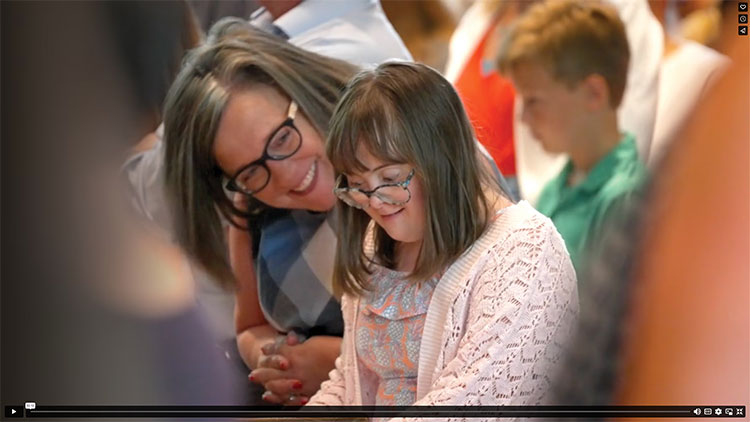
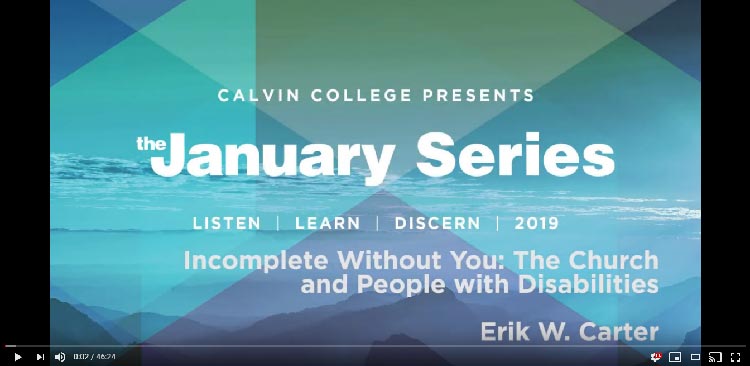
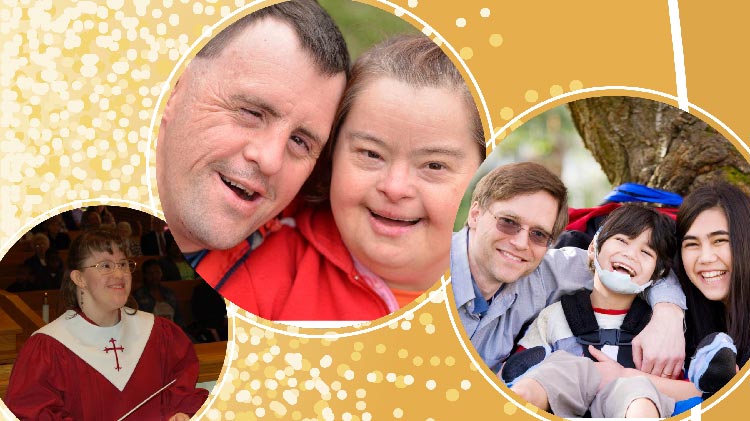
![It’s time to make [faith communities] accessible to people of all abilities - Karen Jackson](images/jackson-make-parishes-accessible-02.jpg)